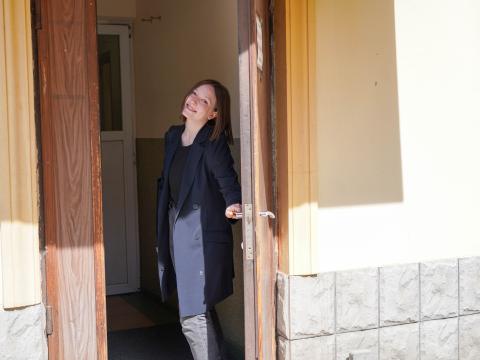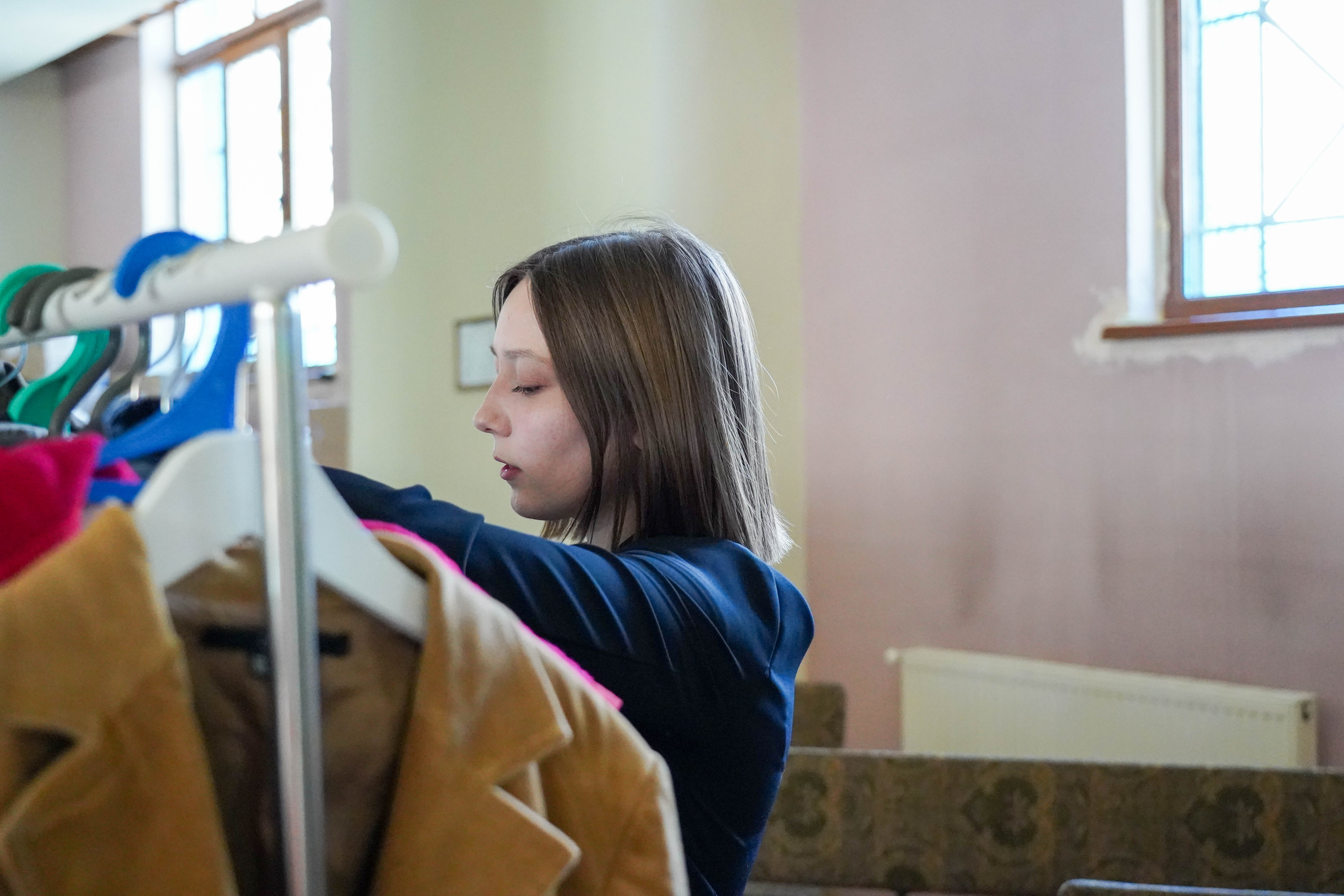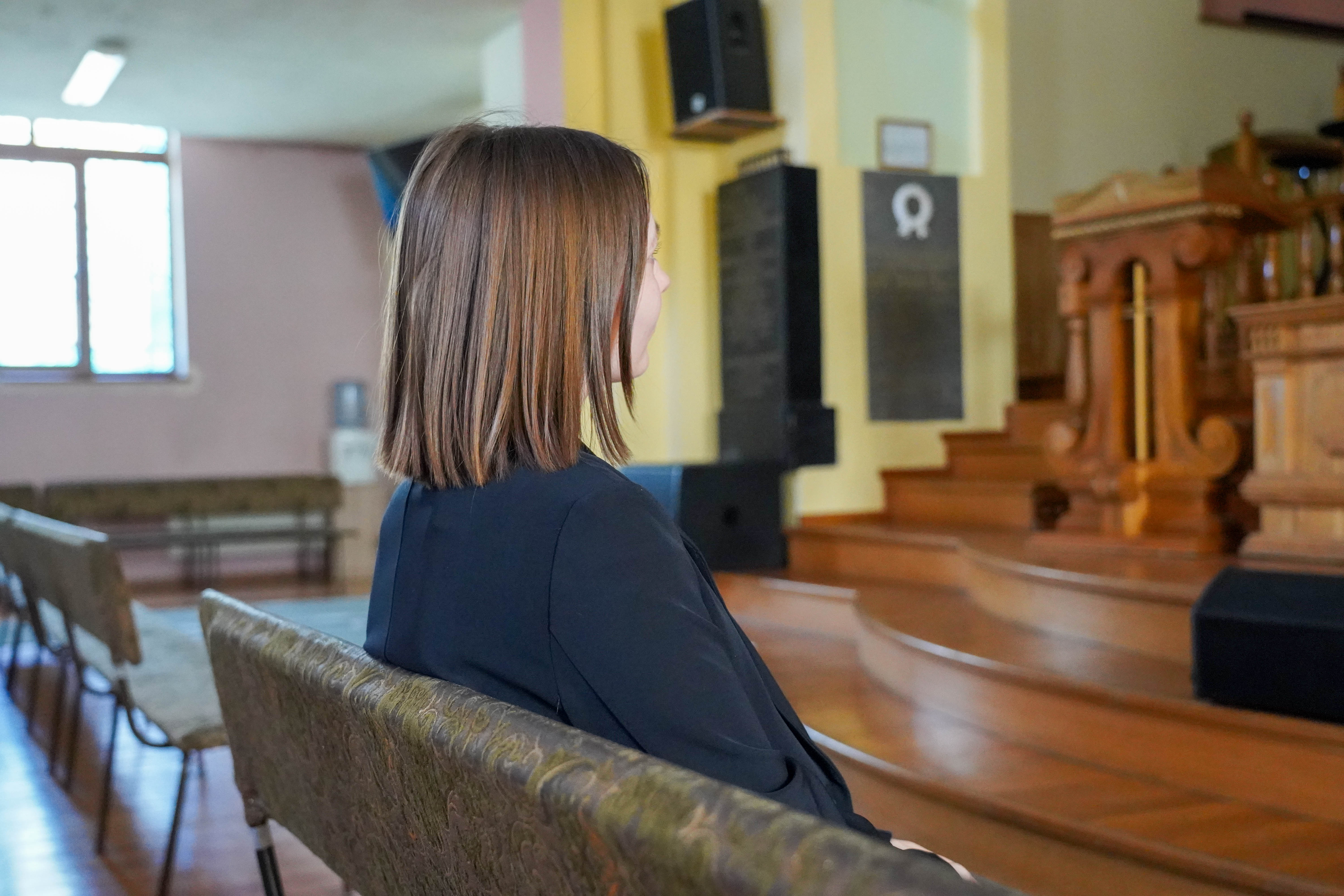Helping the displaced and then becoming displaced yourself - Daryna's story in Ukraine

When the missiles started flying over their village, Daryna’s parents packed up the family and headed to Lviv.
Daryna, 20, and her family are from Kherson, near the border with Crimea, and prior to the latest escalation of the conflict on February 24, they had been helping displaced families from Donbas, where fighting has ebbed and flowed since 2014.
They spent the first few days in Lviv in shock that they had become one of the displaced in need of help, but after four days, Daryna said, they gathered themselves up, and went out to do what they had been doing for years – supporting others. Daryna found a church and began volunteering, sorting out donated clothes in a warehouse and helping other displaced families find the essentials they needed to make it through the first few months of the war. She went every day for three months, finding peace through service, speaking and praying with other families like her own who had had to flee the conflict.
“The church was helping me emotionally live through this. If it weren’t for them, it would have been much worse,” she reflects, sagely.

Settling into a new life far from Kherson
After an initial outpouring of people from Eastern and Northern Ukraine coming West in March 2022, some families have begun to return home, sometimes only to flee violence once again. The latest IOM data from end of May shows that 4.5 million people have returned home. This doesn’t necessarily mean it’s safe to do so – 57% of displaced people are not earning any money at all, and 40% of people who have returned home feel somewhat or completely unsafe, painting a picture of people forced home by economic pressures.
For the time at least, Daryna and her family are staying put, but many of the shelters that sprung up in Lviv initially have now closed, with just a few left in the city. Many more, like Daryna and her family, are trying their best to settle into a reality that still seems quite surreal and temporary. They’re staying at a friend’s apartment, and when the warehouse Daryna had been volunteering at closed, she turned to a job search, and quickly found herself a role.
However, she admits the transition has not always been easy.
“It’s hard to comprehend the life you left behind, but you still have to realise that life goes on,” she says, reflecting on her new life in Lviv. “To be honest, it’s hard to be on the receiving end of the pity; you’re discomforted. You used to help, and now you’re being helped. But it gives you an understanding that when someone else is helping you, it’s ok.”

Grateful for the support of others
In May, Daryna was one of the first recipients of a cash programme World Vision organised with the Baptist World Alliance to support displaced families around Lviv. Cash is a growing part of what is considered ‘best practice’ in a humanitarian response, offering families dignity and choice to determine their most pressing needs and best use of the money.
“Obviously, finance wise it helped because we didn’t prepare for the war. We packed really quickly, and we didn’t have a lot of stuff when we came here, so this money helped for sure. But first and foremost, it’s the emotional help I’m grateful for. Even before I received the cash, when heard about it I felt emotional support and it was nice to know that someone was thinking about you.” Daryna smiles.
And with that, she’s off to work.
Our cash assistance programme is meant to cover a range of basic needs over a three-month period, and the first part of it in June was funded by AdH, donations from the German people, which will support over 11,000 people in West, Central and Eastern Ukraine.